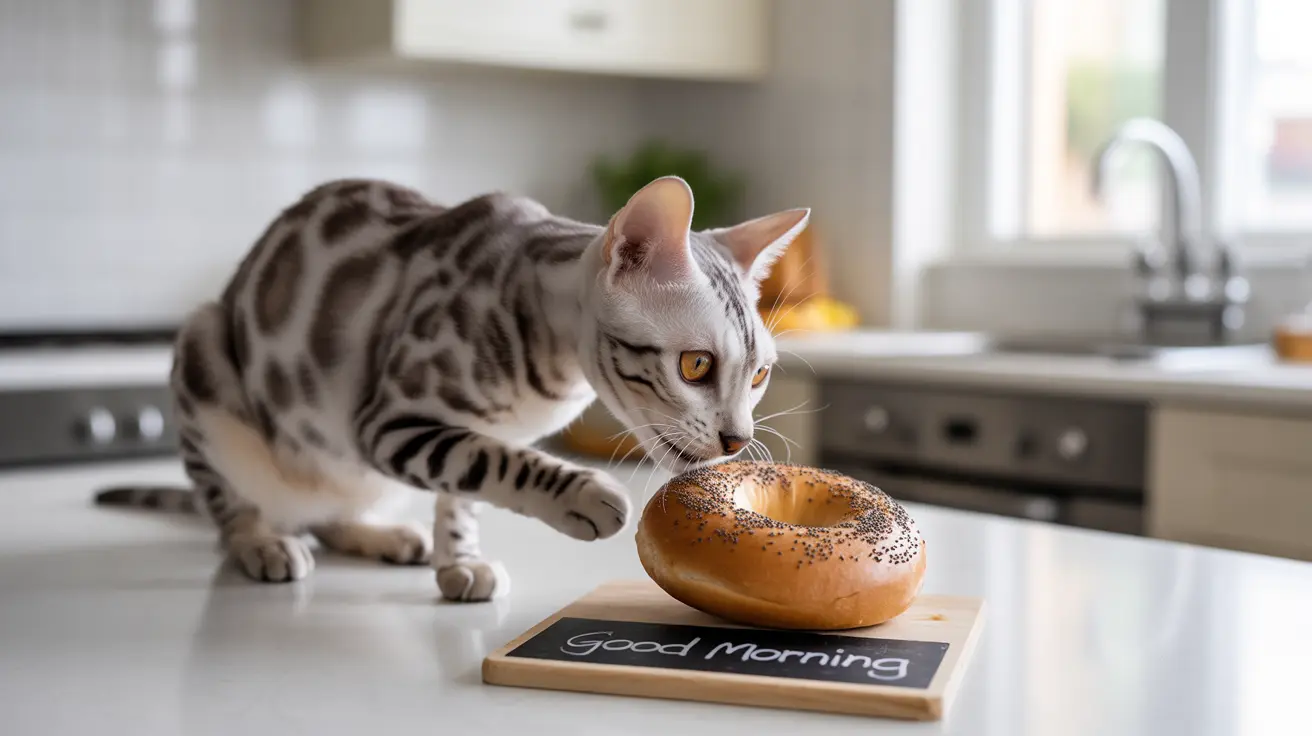If you've ever wondered whether sharing a poppy seed bagel with your feline friend is safe, the answer is a clear and definitive no. Poppy seeds are toxic to cats, and their consumption can lead to serious health complications. This toxicity stems from dangerous opiate alkaloids present in all parts of the poppy plant, including the seeds.
Understanding the risks associated with poppy seed consumption in cats is crucial for every pet owner, as even small amounts can potentially cause harmful effects. Let's explore why these seemingly innocent seeds pose such a significant threat to our feline companions.
Understanding Poppy Seed Toxicity in Cats
Poppy seeds contain various opiate alkaloids, including morphine, codeine, and thebaine. While these seeds are generally safe for human consumption in moderate amounts, cats are particularly sensitive to these compounds due to their smaller size and unique metabolism.
Even commercially processed poppy seeds used in baking can retain traces of these toxic compounds, making them unsafe for feline consumption regardless of their preparation method.
Signs of Poppy Seed Poisoning in Cats
If your cat has ingested poppy seeds, they may exhibit several concerning symptoms:
- Vomiting and excessive drooling
- Decreased responsiveness and lethargy
- Incoordination and difficulty walking
- Dilated pupils
- Respiratory depression
- In severe cases, collapse or coma
These symptoms can appear within hours of ingestion and may vary in severity depending on the amount consumed and the individual cat's sensitivity.
Prevention and Safety Measures
To protect your cat from poppy seed poisoning, implement these essential safety measures:
- Keep all poppy-containing foods securely stored away from cats
- Clean up any crumbs or spills immediately after baking or eating
- Avoid growing ornamental poppies in your garden if you have outdoor cats
- Inform guests and family members about the dangers of sharing poppy-containing foods with pets
Emergency Response to Poppy Seed Ingestion
If you suspect your cat has consumed poppy seeds or any part of the poppy plant, immediate action is crucial:
- Contact your veterinarian or emergency animal hospital immediately
- Document when and how much your cat may have consumed
- Monitor your cat's symptoms and vital signs
- Do not induce vomiting unless specifically instructed by a veterinary professional
Frequently Asked Questions
Can cats safely eat poppy seeds or foods containing them like muffins or bagels?
No, cats cannot safely eat poppy seeds or any foods containing them. All parts of the poppy plant, including seeds, are toxic to cats and can cause serious health problems.
What symptoms should I watch for if my cat accidentally ingests poppy seeds or parts of a poppy plant?
Watch for vomiting, drooling, lethargy, incoordination, dilated pupils, and respiratory changes. If you notice any of these symptoms, seek immediate veterinary care.
Why are poppy seeds and poppy plants toxic to cats, and what compounds cause this toxicity?
Poppy seeds contain opiate alkaloids like morphine, codeine, and thebaine. These compounds affect the central nervous system and can be toxic to cats even in small amounts.
How much poppy seed exposure is dangerous for cats, and is there a safe threshold?
There is no safe threshold for poppy seed consumption in cats. Even small amounts can be dangerous, and the concentration of toxic compounds can vary significantly between different seeds.
What should I do if my cat eats poppy seeds or shows signs of poppy poisoning?
Contact your veterinarian or animal poison control immediately. Do not wait for symptoms to develop, as early intervention is crucial for the best possible outcome.
Conclusion
While poppy seeds might be a tasty addition to human foods, they pose a serious health risk to cats. As responsible pet owners, it's essential to keep these and other toxic substances safely away from our feline companions. If you suspect your cat has consumed poppy seeds, don't hesitate to seek professional veterinary care immediately.






